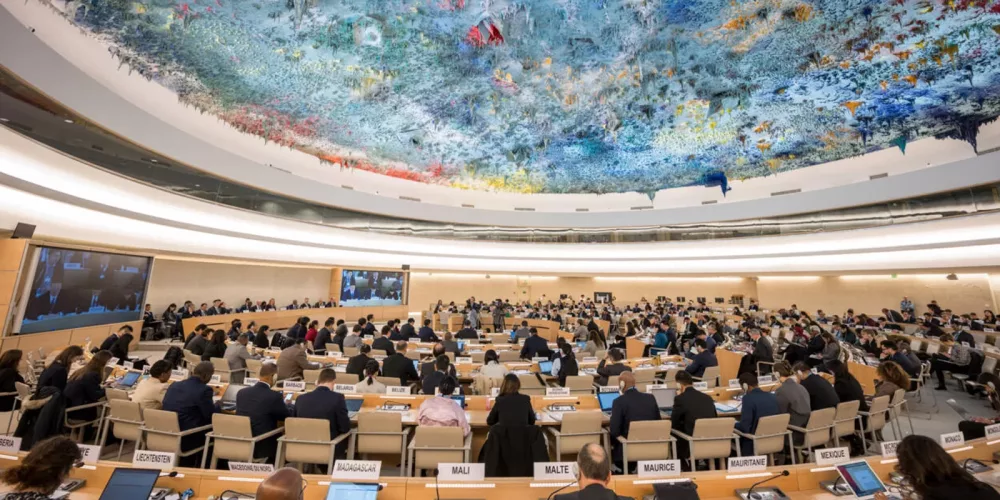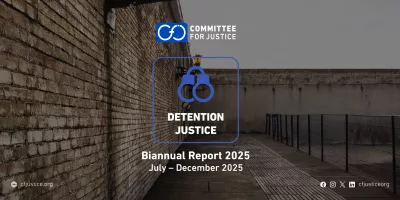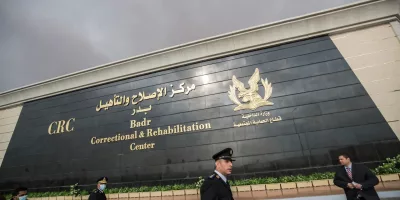Geneva, 25 July 2025
The Committee for Justice (CFJ) welcomes the adoption of Resolution A/HRC/59/L.20 on the Safety of Journalists by the United Nations Human Rights Council (HRC) during its 59th session in Geneva. Adopted without a vote, the resolution reinforces international commitments to media freedom and reflects several of CFJ’s key recommendations, particularly in relation to transnational repression, digital surveillance, and legal protections for journalists working in authoritarian or high-risk environments.
CFJ actively contributed to the drafting process through a comprehensive technical note submitted to the resolution’s core group, led by France and Austria. The note highlighted major gaps in the zero draft and proposed targeted amendments to ensure the text addressed urgent threats to press freedom.
CFJ proposals reflected in the resolution
Condemnation of transnational repression
CFJ called for explicit recognition of cross-border threats against journalists. The resolution includes:
“Gravely concerned about… repressive activities conducted by States… including extraterritorial targeting of journalists through digital, physical and other means, such as the misuse of spyware…” (PP15)
Protection against vague and overbroad laws
CFJ emphasized the need to protect journalists from arbitrary laws. The resolution affirms:
“Urges States to review and, where necessary, repeal or amend laws… including those that are vague or overly broad, such as those criminalizing defamation, fake news or insults to the State…” (OP9a, PP21)
Digital and AI-driven threats
CFJ highlighted the dangers of digital surveillance and algorithmic disinformation. The resolution notes:
“Expressing concern over the influence of artificial intelligence and algorithmic amplification in distorting the information environment…” (PP9)
“Calls upon States… to refrain from using or facilitating the use of spyware, digital surveillance or online harassment…” (OP9m, OP9c)
Recognition of grassroots journalists and marginalized groups
CFJ advocated for broader protections for non-traditional and marginalized reporters, including women and LGBTIQ+. The resolution acknowledges:
“Acknowledging the need to protect journalists from marginalized groups and ensure diverse, inclusive media environments…” (PP24, OP9g)
Gender-responsive measures
CFJ consistently pressed for protections against gender-based harassment. The resolution includes:
“Condemns all forms of gender-based violence, including online smear campaigns… and calls for intersectional approaches to protect women journalists…” (OP3, PP24)
Areas not fully addressed
While the resolution incorporates many of CFJ’s proposals, some recommendations were not fully reflected:
- The term “transnational repression” was not explicitly used, though referenced in substance;
- Newsroom-level threats, such as lack of insurance or harassment by media owners, were not addressed;
- No reference was made to the criminalization of foreign funding of independent media outlets;
- The resolution stops short of mandating investigative mechanisms or a special report, instead encouraging consultations and data collection (OP19–OP20).
Despite these gaps, CFJ considers the adoption of Resolution A/HRC/59/L.20 an important and constructive step toward improving journalist protection globally. The inclusion of key language on cross-border threats, legal barriers, and digital risks marks meaningful progress. While more work remains, the resolution underscores the international community’s recognition of the vital role of independent journalism in advancing human rights, transparency, and accountability.
CFJ will continue to monitor implementation of this resolution and advocate for greater international accountability to ensure that these commitments translate into concrete protections for journalists, especially those operating under authoritarian regimes or in exile.
For media inquiries, please contact:
📞 +41 22 940 35 38
📩 media@cfjustice.org






